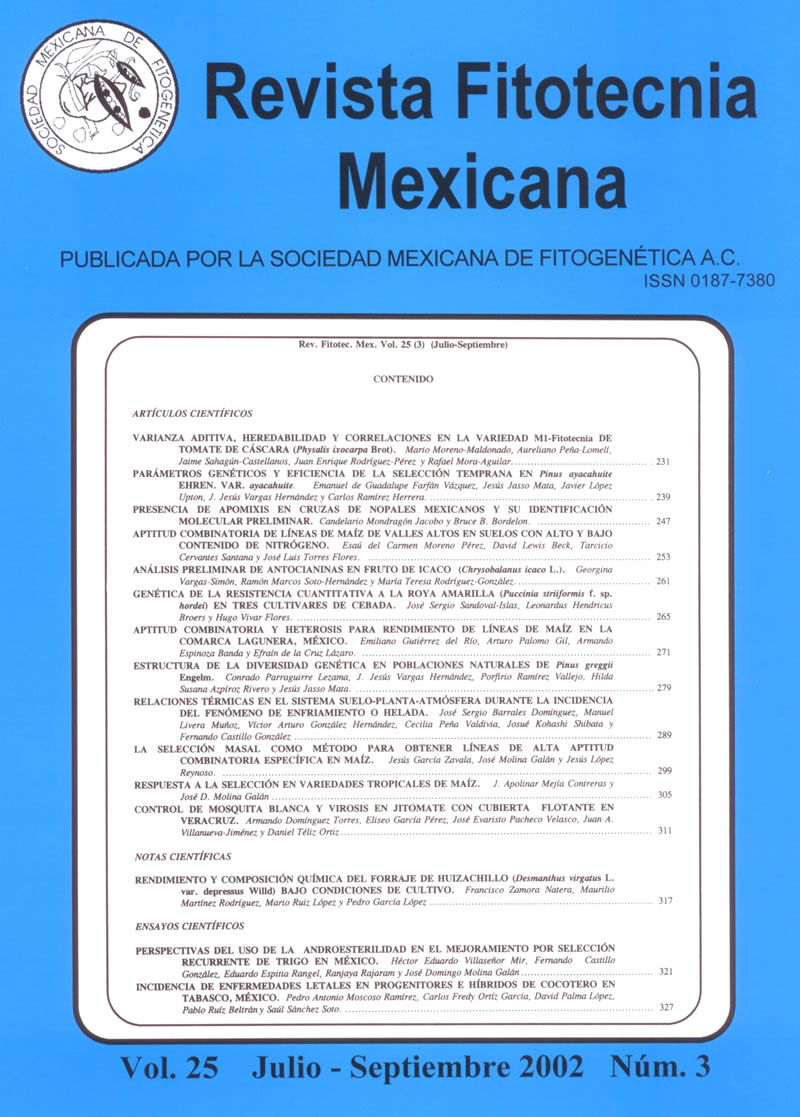APOMIXIS IN CROSSES OF MEXICAN PEAR CACTUS, PRELIMINARY MOLECULAR IDENTIFICATION
Main Article Content
Abstract
Priokly pear cactus is endemic to México and has become an alternative crop with uses as fruit, vegetable and forage in semiarid areas. Only five varieties support the national cactus pear market. This cactus is propagated asexually for commercial purposes, but sexual seed propagation is essential for breeding. Unlike other crops propagated by sexual seed, apomixis represents a serious constraint to cactus pear breeding. Apomixis difficults the screening of individuals obtained from crosses, complicates genetic studies and diminishes the efficiency of breeding programs. This paper discusses the extent of apomixis of 17 breeding populations. Somatic origin of apomicts from
two crosses was verified with the RAPD technique. It was posible to separate apomictic seedlings based on emergency time and size. The
presence of maternal effects associated to the variety CDO on the expression of apomixis was observed. Selfing increased significatively
the number of apomicts en Amarilla CNF, Reyna and Rosalito varieties.

